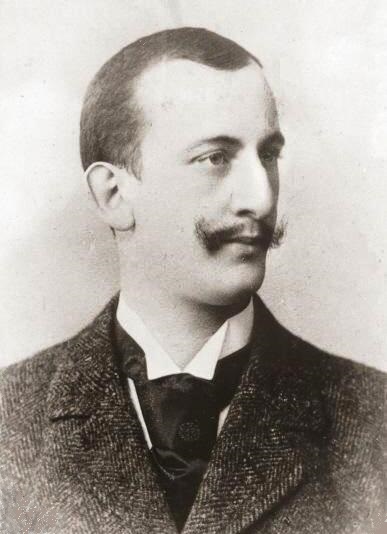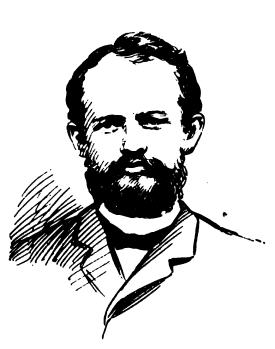|
Karl Holländer
Karl Holländer (Hollaender, Hollander) (2 August 1868 – ?) was a German chess master. He lived in Berlin, where he played in local tournaments. He tied for 11-12th in 1888 (Horatio Caro won), took 5th in 1889 (Theodor von Scheve won), was a winner ahead of Caro and Emil Schallopp in 1890, and shared 3rd in 1891/92 (Caro won). Holländer won a match against Curt von Bardeleben (6.5 : 5.5) at Berlin 1891, and lost to Siegbert Tarrasch Siegbert Tarrasch (; 5 March 1862 – 17 February 1934) was a German chess player, considered to have been among the strongest players and most influential theoreticians of the late 19th and early 20th century. Life Tarrasch was born in Bresla ... (0 : 4) at Nuremberg 1892. References External linksKarl Holländer at 365Chess.com 1868 births German chess players Year of death missing {{Germany-chess-bio-stub ... [...More Info...] [...Related Items...] OR: [Wikipedia] [Google] [Baidu] |
Chess
Chess is a board game for two players. It is an abstract strategy game that involves Perfect information, no hidden information and no elements of game of chance, chance. It is played on a square chessboard, board consisting of 64 squares arranged in an 8×8 grid. The players, referred to as White and Black in chess, "White" and "Black", each control sixteen Chess piece, pieces: one king (chess), king, one queen (chess), queen, two rook (chess), rooks, two bishop (chess), bishops, two knight (chess), knights, and eight pawn (chess), pawns, with each type of piece having a different pattern of movement. An enemy piece may be captured (removed from the board) by moving one's own piece onto the square it occupies. The object of the game is to "checkmate" (threaten with inescapable capture) the enemy king. There are also several ways a game can end in a draw (chess), draw. The recorded history of chess goes back to at least the emergence of chaturanga—also thought to be an ancesto ... [...More Info...] [...Related Items...] OR: [Wikipedia] [Google] [Baidu] |
Horatio Caro
Horatio Caro (5 July 1862 – 15 December 1920) was an English chess player. Caro was born in Newcastle upon Tyne, England, but spent most of his chess career in Berlin, Germany having moved there when he was two years old. He played several matches. In 1892, he drew with Curt von Bardeleben (+2 –2 =0) and lost to Szymon Winawer (+2 –3 =1). In 1897, he was defeated by Jacques Mieses (+3 –4 =3). In 1903, he drew with Bardeleben (+4 –4 =0). In 1905, he won against Moritz Lewitt (+4 –3 =5). In tournaments, he won in Berlin in 1888, 1891, 1894, 1898 (jointly), and 1903. He also took 10th at Berlin 1883, took 4th at Berlin 1887, tied for 2nd-3rd at Nuremberg 1888, took 3rd at Berlin 1889, took 2nd at Berlin 1890. He took 3rd at Berlin 1894, took 9th at Berlin 1897, took 17th at Vienna 1898, took 4th at Berlin 1899, tied for 6-7th at Berlin 1902, tied for 11-12th at Coburg 1904, tied for 7-8th at Barmen 1905, took 9th at Berlin 1907, tied for 3-5th at Berlin 1908, and took ... [...More Info...] [...Related Items...] OR: [Wikipedia] [Google] [Baidu] |
Theodor Von Scheve
Theodor von Scheve (11 June 1851 – 19 April 1922) was a German chess master and writer. Scheve was born in Cosel in the Prussian Province of Silesia. An army officer by profession, Scheve lived in Breslau, where he co-founded the ''Schachverein Breslau Anderssen'', and later in Berlin, where he played in many local tournaments. He died in Patschkau. In Berlin, Scheve took 3rd, behind Berthold Lasker and Siegbert Tarrasch, and took 2nd, behind Curt von Bardeleben, in 1881; tied for 6–8th in 1883 ( Hermann von Gottschall won); took 2nd, behind Max Harmonist, and took 8th in 1887 ( Paul Klemens Seuffert won); won and took 2nd (Quadrangular) in 1889; twice tied for 3rd- 4th in 1890 and 1891/92 ( Horatio Caro won), took 3rd in 1893, won in 1894, shared 1st in 1898/99, and tied for 2nd–3rd in 1899/1900. Scheve drew two matches against Carl August Walbrodt (+4 –4 =2) and Curt von Bardeleben (+4 –4 =4) in Berlin in 1891. Scheve shared 1st with S. Löwenthal at Frankfurt ... [...More Info...] [...Related Items...] OR: [Wikipedia] [Google] [Baidu] |
Emil Schallopp
Emil Schallopp (1 August 1843, Friesack, Germany – 9 April 1919, Berlin) was a German chess master and author. He became head of the shorthand department of the Reichstag. He wrote many books, including one on the Steinitz– Zukertort 1886 World Championship match. He is best known today as an author, particularly of the seventh edition (1891) of the ''Handbuch des Schachspiels''. Tournaments Schallopp played in many international chess tournaments, especially in the 1880s, although he never won an important event. He placed fourth at Wiesbaden 1880, after Joseph Henry Blackburne, Berthold Englisch, and Adolf Schwarz, and ahead of James Mason, Szymon Winawer, Louis Paulsen, and nine others. He placed second at Nottingham 1886 to Amos Burn, and received the best game prize for his encounter with Zukertort. Legacy The Schallopp Defense to the King's Gambit Accepted (1.e4 e5 2.f4 exf4 3.Nf3 Nf6) is named after him. The Schallopp Defense variation of the Slav Defense Th ... [...More Info...] [...Related Items...] OR: [Wikipedia] [Google] [Baidu] |
Curt Von Bardeleben
Curt Carl Alfred von Bardeleben (4 March 1861 – 31 January 1924) was a German chess master, journalist, and member of the German nobility. Biography Curt von Bardeleben started playing chess when he was ten years old and quickly developed into one of the strongest players in Weimar. Originally a student of law, Bardeleben gave it up in order to become a professional chess player. He later quit competitive chess for four years between 1883 and 1887 to complete his law studies. He recorded some fine tournament results, especially in the 1880s and 1890s. Although his later chess career was spotty, he continued to be a strong player. In 1908 he lost a match to future world champion Alexander Alekhine, who described him as "a charming old chap" but also said he lacked the will to win. Bardeleben was married three times in the early 1900s, supposedly to women who wanted his title of nobility. He was described thus by Edward Lasker: He always wore a black cut-away suit of dubious vinta ... [...More Info...] [...Related Items...] OR: [Wikipedia] [Google] [Baidu] |
Siegbert Tarrasch
Siegbert Tarrasch (; 5 March 1862 – 17 February 1934) was a German chess player, considered to have been among the strongest players and most influential theoreticians of the late 19th and early 20th century. Life Tarrasch was born in Breslau, in what was then Prussian Silesia and now is Poland. Having finished school in 1880, he left Breslau to study medicine in Berlin and then in Halle. With his family, he settled in Nuremberg, Bavaria, and later in Munich, setting up a successful medical practice. He had five children. Tarrasch was Jewish, converted to Christianity in 1909, and was a patriotic German who lost a son in World War I, yet he faced antisemitism in the early stages of the Third Reich. Chess career A medical doctor by profession, Tarrasch may have been the best player in the world in the early 1890s. He scored heavily against the ageing World Champion Wilhelm Steinitz in tournaments (+3−0=1) but refused an opportunity to challenge Steinitz for the world tit ... [...More Info...] [...Related Items...] OR: [Wikipedia] [Google] [Baidu] |
1868 Births
Events January * January 2 – British Expedition to Abyssinia: Robert Napier leads an expedition to free captive British officials and missionaries. * January 3 – The 15-year-old Mutsuhito, Emperor Meiji of Japan, declares the ''Meiji Restoration'', his own restoration to full power, under the influence of supporters from the Chōshū and Satsuma Domains, and against the supporters of the Tokugawa shogunate, triggering the Boshin War. * January 5 – Paraguayan War: Brazilian Army commander Luís Alves de Lima e Silva, Duke of Caxias, enters Asunción, Paraguay's capital. Some days later he declares the war is over. Nevertheless, Francisco Solano López, Paraguay's president, prepares guerrillas to fight in the countryside. * January 7 – The Arkansas constitutional convention meets in Little Rock. * January 9 – Penal transportation from Britain to Australia ends, with arrival of the convict ship '' Hougoumont'' in Western Australia, afte ... [...More Info...] [...Related Items...] OR: [Wikipedia] [Google] [Baidu] |
German Chess Players
German(s) may refer to: * Germany, the country of the Germans and German things **Germania (Roman era) * Germans, citizens of Germany, people of German ancestry, or native speakers of the German language ** For citizenship in Germany, see also German nationality law **Germanic peoples (Roman era) * German diaspora * German language * German cuisine, traditional foods of Germany People * German (given name) * German (surname) * Germán, a Spanish name Places * German (parish), Isle of Man * German, Albania, or Gërmej * German, Bulgaria * German, Iran * German, North Macedonia * German, New York, U.S. * Agios Germanos, Greece Other uses * German (mythology), a South Slavic mythological being * Germans (band), a Canadian rock band * "German" (song), a 2019 song by No Money Enterprise * ''The German'', a 2008 short film * "The Germans", an episode of ''Fawlty Towers'' * ''The German'', a nickname for Congolese rebel André Kisase Ngandu See also * Germanic (disambig ... [...More Info...] [...Related Items...] OR: [Wikipedia] [Google] [Baidu] |





